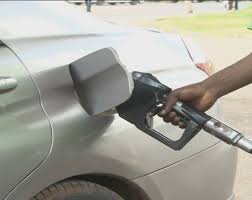Motorists in Tanzania will breathe a sigh of relief starting today after the regulator cut fuel prices in response to a slowdown in global oil prices.
In its newly published statement, the Energy and Water Utilities Regulatory Authority (Ewura) says a litre of petrol will now be sold at a price that is cheaper by TSh441, while diesel will fetch TSh197 less than what it used to cost during the preceding month.
The new price for a litre of petrol in Dar es Salaam is TSh2,969, while diesel will fetch TSh3,125.
“The oil prices in the world market in July 2022 decreased compared to prices for June 2022. Hence, the fuel prices in the local market decreased as well at a range between TSh271/litre and TSh362/litre for petrol and by TSh430/litre for kerosene compared with the subsidized prices of August 2022,” Ewura says in its statement.
The statement however, with an exception of diesel that was imported via Tanga whose price decreased by TSh13/litre, the price for the product imported via Dar es Salaam and Mtwara is increasing this September by TSh37/litre and TSh86/litre respectively.
However, in its effort to continue reducing the effect of increasing fuel prices to the country whereby most of the economic activities depend on diesel and also reducing a gap between petrol and diesel prices, the government has issued a subsidy of TSh65 billion for the September 2022 fuel prices.
Fuel prices rose to their highest levels in Tanzania last month when a litre of petrol in Dar es Salaam reached TSh3,410 up from TSh3, 220 an increase of TSh190, whereas a litre of diesel will go for TSh3,322 from 3, 143 of the preceding month.
Authorities say the rise is largely due to a disruption in the global supply chain, occasioned by the Ukraine War which started on February 24, 2022.
That also came against the backdrop of a rise in demand after global economies resumed production after the Covid-19 lockdowns in 2020 and 2021.
According to Ewura, oil marketing companies are free to sell their products at a price that gives them a competitive advantage provided that they [such prices] do not exceed the price cap and is not below the floor price for the relevant product.
“All petrol stations are required to publish petroleum product prices on clearly visible boards. The price boards should clearly show prices charged, discounts offered as well as any trade incentives or promotions on offer. Consumers are encouraged to purchase from stations that sell products at the most competitive prices and offer better services,” Ewura says.








